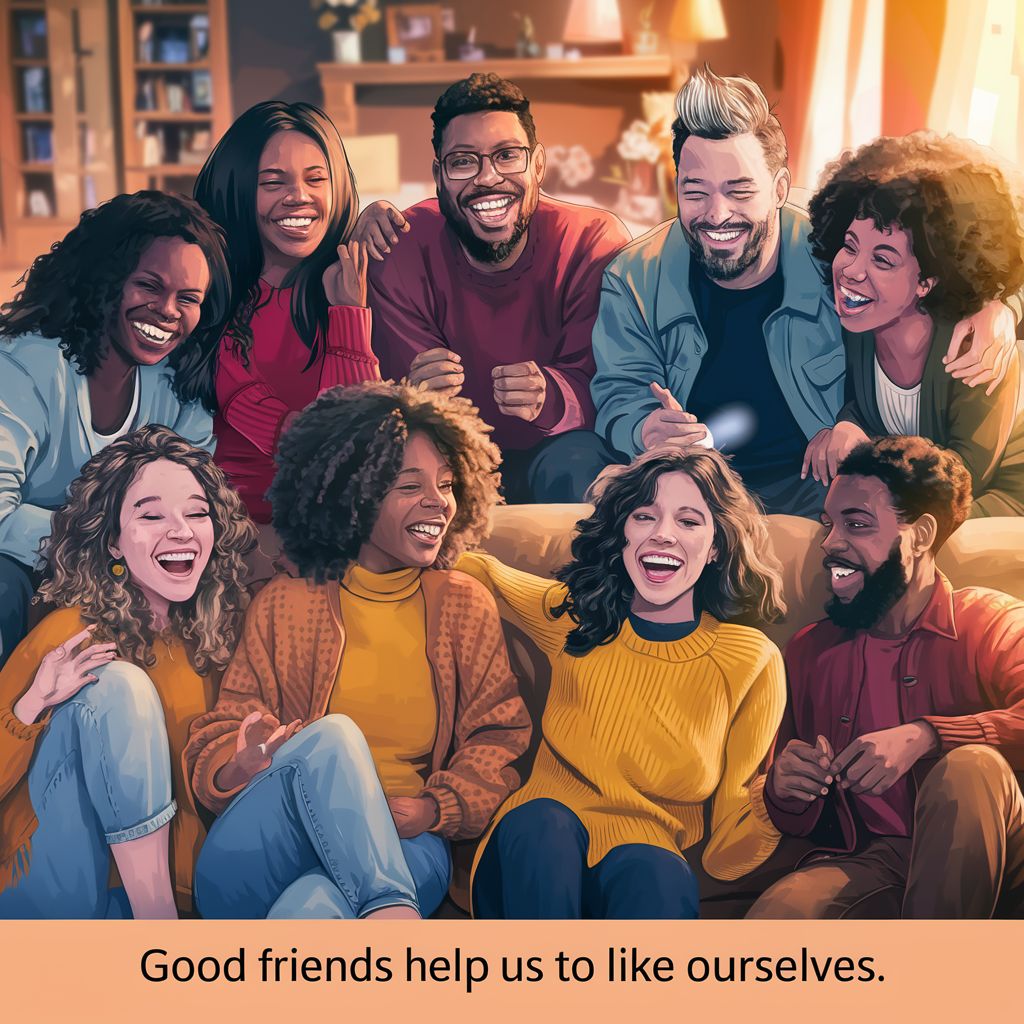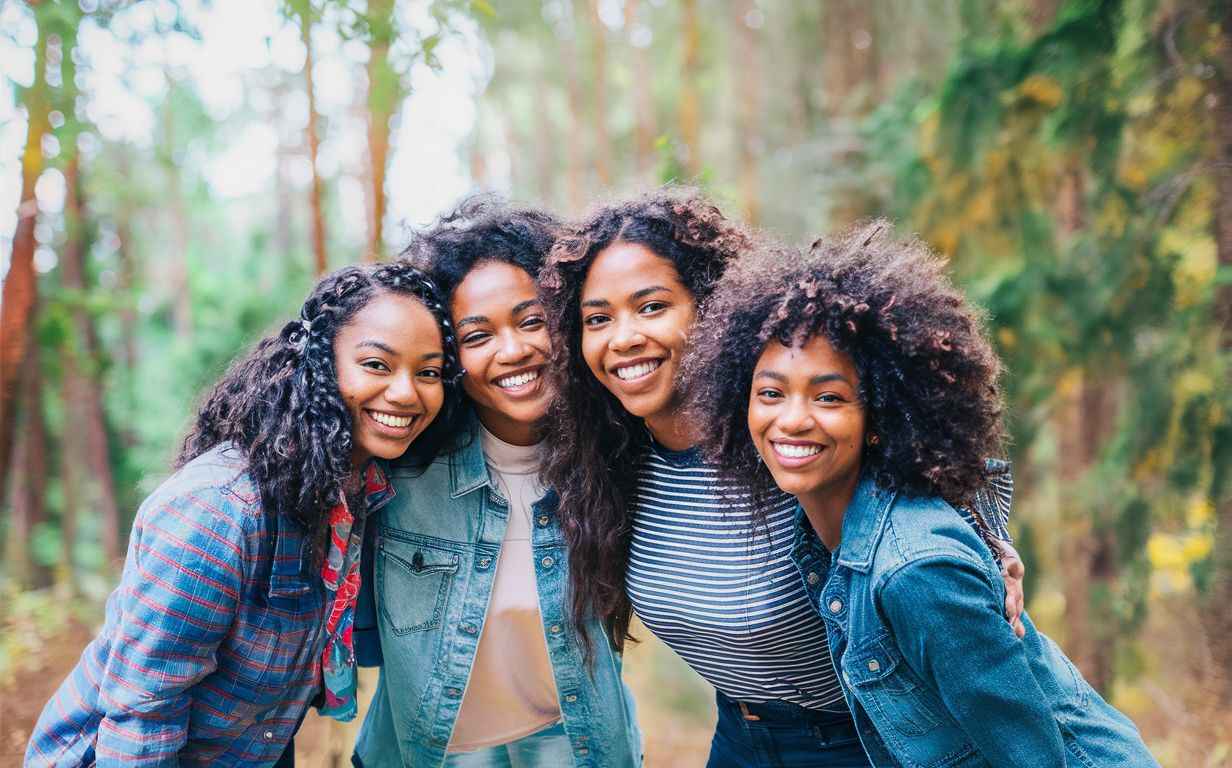Friendship 101: How to Be a Stellar Friend
Being a good friend is all about building strong, supportive connections. Here are some key qualities to cultivate:
- Be a good listener: Lend a patient ear, ask questions, and avoid interrupting. Let your friend vent or share their joys without judgment.
- Offer support: Be there for your friends through thick and thin. Celebrate their successes and offer a shoulder to cry on during tough times.
- Be reliable: Follow through on commitments and be someone your friends can count on.
- Be trustworthy: Keep confidences safe and respect your friend’s privacy.
- Be honest: Be upfront and truthful, even when delivering difficult messages.
- Be respectful: Accept your friend for who they are, even if you don’t always agree.
- Be fun!: Make time for laughter, shared activities, and creating positive memories together.
By embodying these qualities, you’ll foster strong, lasting friendships that enrich your life.

The Hallmarks of a Good Friend:
A good friend isn’t just someone you hang out with. It’s about building a supportive and trustworthy connection. Here are the key ingredients:
- Empathetic Listener: Lend a patient ear and avoid judgment. Be there to listen, not just talk.
- Reliable Rock: Be someone your friends can count on, following through on commitments.
- Trustworthy Confidant: Keep secrets safe and respect their privacy.
- Honest Voice: Deliver truth, even when it’s tough.
- Respectful Ally: Accept them for who they are, even with disagreements.
- Fun Companion: Share laughter, activities, and create positive memories.

The gift of vulnerability
Vulnerability: Unveiling the Strength Within
Vulnerability isn’t weakness; it’s the courage to be open and honest. It’s the key to:
- Deeper Connections: Sharing your true self allows for more intimate friendships and relationships.
- Personal Growth: Facing your fears and insecurities opens doors to self-discovery and improvement.
- Greater Fulfillment: Embracing vulnerability allows for authenticity and a more meaningful life.
Being vulnerable isn’t easy, but the rewards are immense.

Embrace Your Imperfections: Freedom and Authenticity Await
Perfection is a myth. Here’s why embracing your imperfections unlocks true potential:
- Authenticity & Connection: Letting go of the need to be perfect allows you to be your true self, fostering deeper connections.
- Freedom & Growth: Striving for flawlessness creates pressure. Accepting your imperfections frees you to learn, grow, and experience life fully.
- Strength & Resilience: Imperfections are stepping stones. By acknowledging them, you build resilience and overcome challenges.
Imperfections are what make you unique. Embrace them and unlock a life of freedom and authenticity.

Reassurance: The Gift of Trust and Support
Good friends are masters of reassurance. They offer a powerful gift:
- Validation & Confidence: Friends who reassure offer positive affirmation, boosting your confidence and sense of self-worth.
- Comfort & Security: Knowing someone believes in you provides comfort and a sense of security during difficult times.
- Reduced Anxiety & Fear: Reassurance helps calm anxiety and fears, encouraging you to face challenges head-on.
A friend’s reassurance reminds you that you’re not alone and that you’re capable of anything you set your mind to.

Self-Discovery with Friends: A Path to Knowing Yourself
Good friends can be amazing mirrors, helping you build self-understanding. Here’s how:
- Honest Feedback: True friends offer honest yet constructive feedback, highlighting strengths and areas for growth.
- Different Perspectives: Their unique viewpoint can shed light on aspects of yourself you might have missed.
- Shared Experiences: Reflecting on shared experiences with friends can reveal your values, preferences, and how you react in different situations.
By fostering a safe space for open communication, good friends become invaluable partners in your journey of self-discovery.

Friends: The Thinking Partners You Need
Good friends aren’t just emotional anchors; they’re intellectual allies who help you think better. Here’s how:
- Challenge Your Ideas: Friends offer different perspectives, which can challenge your assumptions and lead to a more well-rounded understanding.
- Spark New Ideas: Brainstorming with friends can ignite creative thinking and lead to innovative solutions or perspectives.
- Hold You Accountable: Honest friends can challenge your reasoning and encourage you to think more critically.
- Offer Support & Encouragement: Knowing someone believes in your ability to think things through can boost your confidence and problem-solving skills.
By fostering a stimulating environment, good friends become invaluable partners in your intellectual growth.


